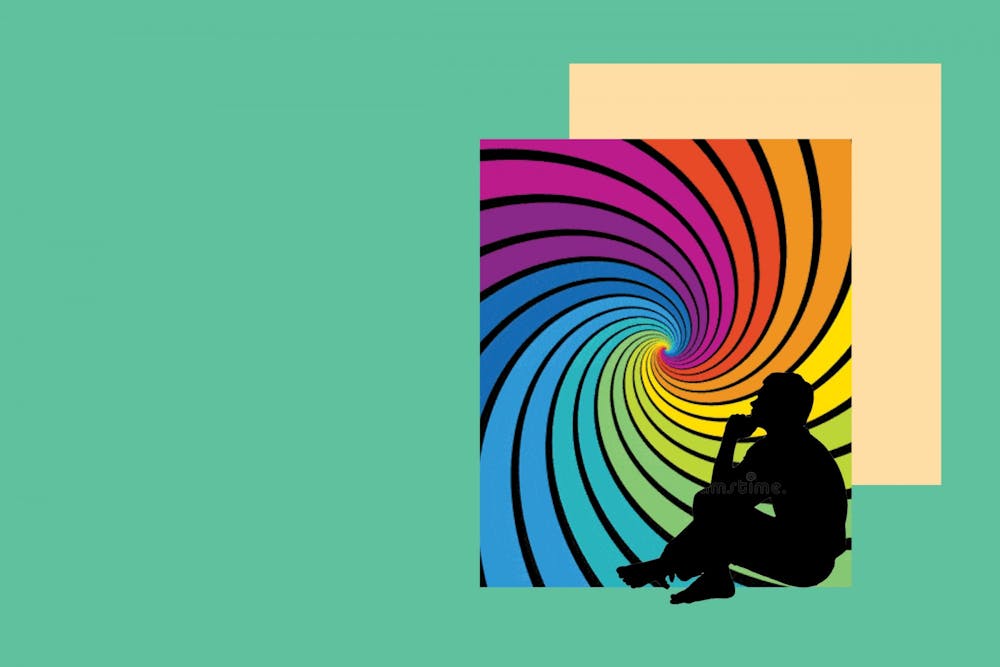It’s funny, sometimes I find I’m more stressed during the summer than during the school year. School–year–Eva would be appalled to hear me say that. “Girl, what are you talking about,” she’d laugh. “We are drowning during the year trying to balance classes, clubs, work, social life, and mental and physical health. During the summer, we’re free.” Ironically, it’s this freedom that, after a few weeks of post–finals bliss, often introduces a new form of anxiety, different from the one that comes with the typical academic and social pressures of the school year.
Summer stress is more like an existential dread, a feeling of being untethered. I’m fortunate enough to have gotten an incredible summer job, one that keeps my mind and hands busy, and provides a sense of structure to the long, hot days. But when I leave work, I begin to feel restless and antsy. There’s no homework for me to do. No assignments to turn in on Canvas. No midterms to study for. The time is mine to spend, a privilege that makes me feel delirious and giddy—yet tremendously unsettled. How should I spend it?
I feel pressure to fill the hours, to stuff each waking moment with productivity so the days feel bloated and heavy and carrying their weight feels satisfyingly exhausting. My standards are impossibly high—the days don’t feel worthwhile unless I finish them feeling some sense of accomplishment. A voice in my head sharply whispers options for activities to do, commanding me to choose one: write, paint, read, volunteer, workout, be social, learn a new language, pick up a new hobby, master a skill of some sort, get ahead. It’s a toxic and exhausting qualification, this need to feel like I’ve been productive in order for a day to be deemed “good.”
I bully myself, the voice in my head trying to drive me by using cruelty and comparison. “You should have a bestselling book by now if you really consider yourself a writer,” it sneers. “You think you’re a good person? Why aren’t you doing more for others with all this free time?” “Literally what are you even good at? If you were really an artist, you’d be better than this by now. Get a new hobby.” “Everyone is doing better than you. What have you accomplished?”
In a society powered by grind culture, it’s hard not to be constantly telling myself that there’s more I should be doing. I hate that word: “should.” But it’s seared into my brain, torturing my mind with unrealistically high expectations. What does “I should” even mean? Who sets these standards?
Sometimes I feel so overwhelmed by all the things I tell myself I should be doing that I end up simply doing nothing at all. I lie on my bed alternating between TikTok, Instagram, and YouTube, mindlessly scrolling and feeling utterly disgusted with myself when I can’t stop. “Get up,” the little voice in my head says, revolted by my laziness and lack of self–control. “Get the fuck up and do something.” This only makes me feel worse—agitated and anxious—and any will I have to move disappears.
This guilt doesn’t really exist during the academic year. If I’m doing nothing, it feels deserved—a reward for handing in an assignment or completing a midterm or getting home after a long day. But during the summer, I convince myself that doing nothing is gluttonous, that I’m unmotivated and lazy—despite knowing that summer is supposed to be a time for us university students to take a break and relax.
The problem lies, I think, in my struggle to be comfortable with stillness. My mind is programmed to always look ahead, wired to crave the hustle and bustle of working towards tangible goals and addicted to academic validation that with the openness and fluidity of summer I often feel adrift. It’s an embarrassing truth, this idea that school is such a significant part of my identity—and has been for so many years—that its absence leaves such a cavernous void in its wake. I hate that I feel lost without the constant motion, stress, and rigidity—especially since they paradoxically have me longing for the opportunity to just relax.
Friends and family have recommended I try meditation, and I’ve reluctantly listened and watched the videos and podcasts they've sent, trying not to roll my eyes when yet another omniscient voice condescendingly tells me to “focus on my breath.” To be honest, I suck at it—I struggle to stop fidgeting and to quiet my mind, but I guess that’s the point: to sit in and with discomfort.
That’s what I’ve been working on this summer—leaning into stillness, giving myself permission to do absolutely nothing. Sometimes life is just unexciting and uneventful. To fear and avoid boredom and stasis is, therefore, not only irrational and potentially harmful but unrealistic.
Our generation seems to talk a lot about the importance of accepting and being at peace with ourselves. But what about the importance of learning how to just "be?"
This summer, I haven’t written a bestseller or started a business or created a cool new app in my free time. I wish I could say otherwise—especially at a school like Penn where it feels like everyone is perpetually doing mind–blowing and spectacular things.
But I have been working on something over these past few months: myself. I’ve been flirting with the idea that maybe to wake up every morning and simply exist is an accomplishment in and of itself, as trite and painfully cliche as that may sound. Though internalizing (and believing) this mantra is difficult—my inner skeptic finds the concept too mushy, and scornfully tells me that I'm giving myself permission to "slack off"—its message represents a mentality I’ve been aspiring to adopt: that I am inherently enough. After all, self–worth shouldn't come and go like seasons.







